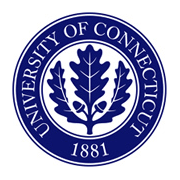 A study by Joshua Hyman, an assistant professor of public policy and educational leadership at the University of Connecticut, found that if low-income students are not required to pay a fee to take standardized college entrance examinations, college enrollment rates will rise.
A study by Joshua Hyman, an assistant professor of public policy and educational leadership at the University of Connecticut, found that if low-income students are not required to pay a fee to take standardized college entrance examinations, college enrollment rates will rise.
Dr. Hyman looked at data from the state of Michigan where eleventh grade students are required to take the ACT and do so at state expense. He then compared the change in the rate of students going to college before and after implementation of the policy. Dr. Hyman found that the free standardized testing policy results in a one percent increase in four-year college enrollment rates for low-income students.
The data showed that that for every 10 students from low-income families who took a college entrance exam before they were mandatory, there were an additional five students who didn’t take the test but who would score well enough to get into college if they did. “This policy in a sense increased the supply of poor students who are taking these college entrance exams and scoring well by 50 percent,” Dr. Hyman says. “I found that to be a pretty surprising result – that there are a lot of disadvantaged students out there who would do well on these tests but just aren’t taking them. “
The increase may not seem significant, but it means that in states that have mandatory college entrance examination policies thousands of more low-income students – many of whom are African Americans – will enroll in four-year colleges each year.
The study, “ACT for All: The Effect of Mandatory College Entrance Exams on Postsecondary Attainment and Choice,” was published in the journal Education Finance and Policy. It may be accessed here.

